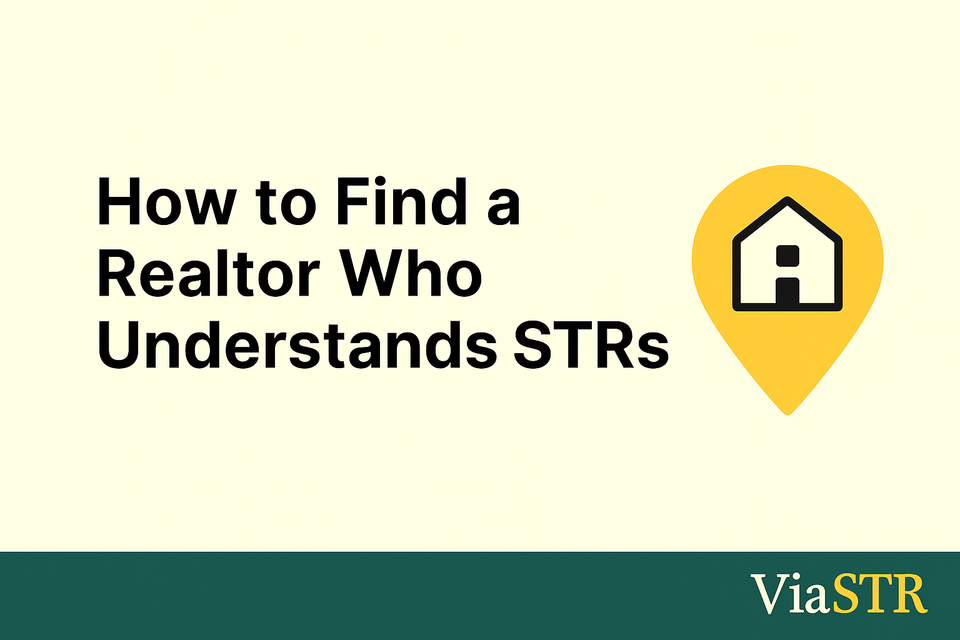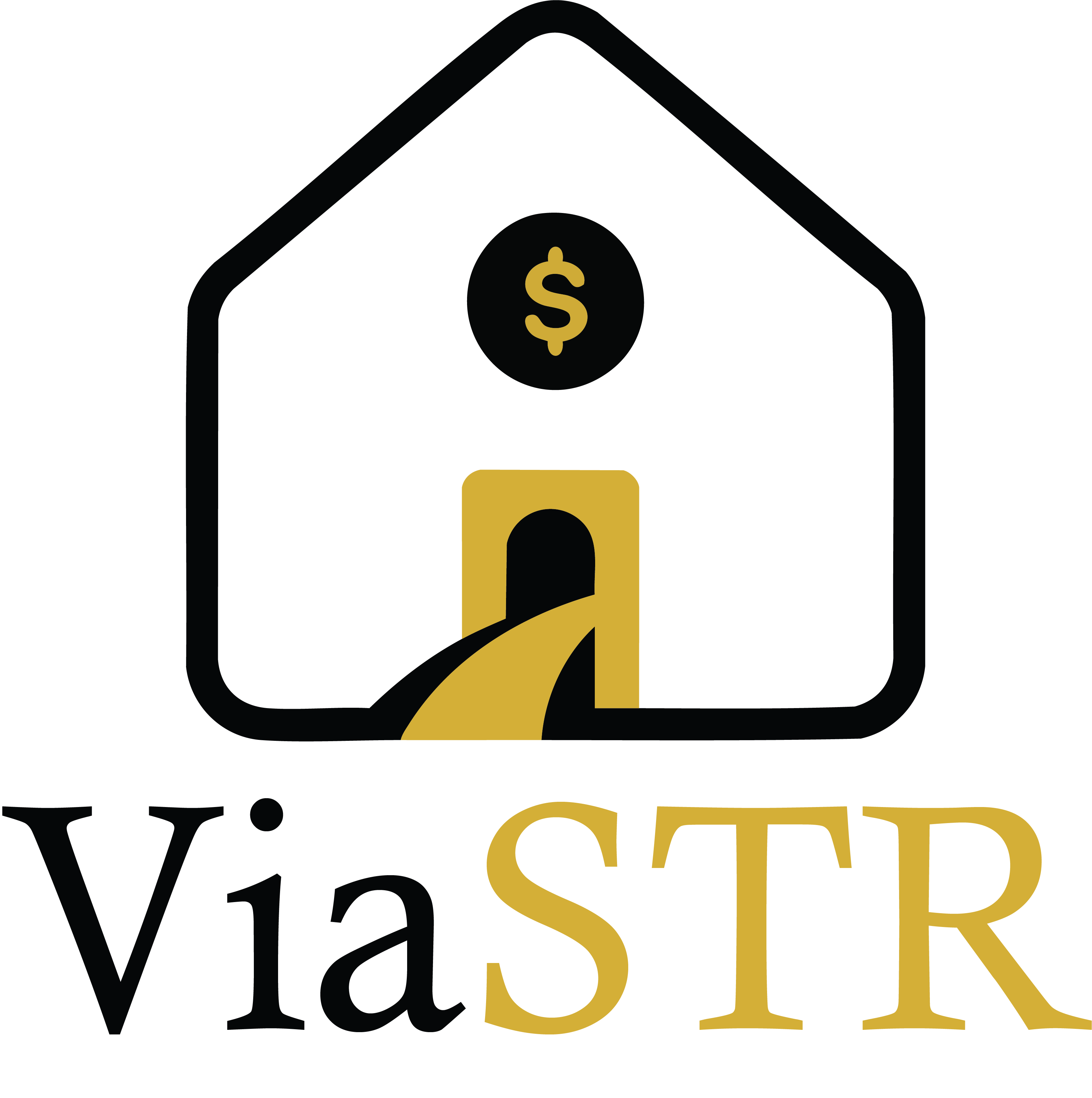How to Find a Realtor Who Understands STRs

At a Glance
- Not all realtors understand STRs — the right one knows regulations, cashflow, and guest demand.
- Local STR experience is key — ask how many STR deals they’ve closed.
- Knowledge of zoning and permits saves headaches — your realtor should guide compliance.
- STR market insights beat generic comps — ADR, occupancy, and seasonal demand matter.
- The right realtor has a network — lenders, cleaners, and insurance partners to support your launch.
Why Your Realtor Matters in STR Investing
Finding the right property is only half the battle. The realtor you choose can make or break your short-term rental (STR) investment.
A traditional agent may know how to sell a home — but not every agent understands the nuances of zoning rules, tax considerations, and what makes an STR profitable.
This is especially important for W2 earners using STRs for tax savings or wealth-building. A knowledgeable realtor helps you avoid rookie mistakes and sets your portfolio up for long-term success.
1. Look for Local STR Experience
Not every agent has STR chops. Start by asking:
- How many STR transactions have you handled in the past 12 months?
- Do you personally invest in STRs or work primarily with investors?
- What drives nightly rates and occupancy in this market?
📌 Case Study: Avery Carl, author of Short-Term Rental, Long-Term Wealth, famously built her STR empire by working only with realtors who specialized in investor deals. She now runs The Short Term Shop, which exclusively helps STR buyers.
2. Verify Knowledge of Rules & Regulations
Your realtor should be able to navigate regulations before you buy.
A STR-savvy agent will know:
- Which neighborhoods are STR-friendly (and which aren’t).
- Current permit requirements and how renewals work.
- Any pending legislation that could affect STR viability.
- Local community sentiment toward STRs.
👉 Regulations are a dealbreaker. Don’t rely on guesswork. Check local ordinances directly, and use your realtor to confirm.
3. Evaluate Market-Specific Insights
Generic comps won’t cut it. You need STR-specific data:
- Average Daily Rates (ADR) by property type.
- Seasonal occupancy highs and lows.
- Which features drive bookings (pools, hot tubs, lakefront, walkability).
- Competitive trends pulled from AirDNA or STR Insights.
A strong realtor can pair MLS listings with STR data to show which properties actually cashflow.
4. Ask About Their Investor Network
The right realtor isn’t just an agent — they’re a connector.
STR-friendly agents often have networks that include:
- Lenders familiar with vacation home and DSCR loans.
- Property managers and co-hosts.
- Cleaners and handymen.
- Insurance providers who cover STRs.
This saves you months of trial and error and accelerates your launch.
5. Use the Interview Test
Don’t settle for the first realtor you meet. Interview at least 2–3 agents.
The best ones will:
- Ask insightful questions about your goals, exit strategy, and cashflow targets.
- Flag regulatory risks early.
- Challenge whether a property fits your long-term vision.
📌 Pro Tip: If an agent only talks about “beautiful kitchens” and “open floor plans” without mentioning occupancy or ADR, move on.
Putting It All Together
Choosing the right STR realtor isn’t optional — it’s critical. The wrong one could leave you with a property that doesn’t cashflow or worse, can’t legally operate.
👉 If you’re ready to start your search, don’t just pick the first agent you find. Finding a realtor who truly understands STRs can mean the difference between a thriving investment and a costly mistake.
Next Steps
- Previous Post: How to Choose the Right Market for Your STR
- Next Post: How to Analyze STR Deals Like a Pro (coming soon)
See Also
- The STR Loophole Explained: Tax Savings Without REP Status
- The 6-Phase Journey: How W2 Earners Build Wealth with STRs
- STRs as a Legacy Business



